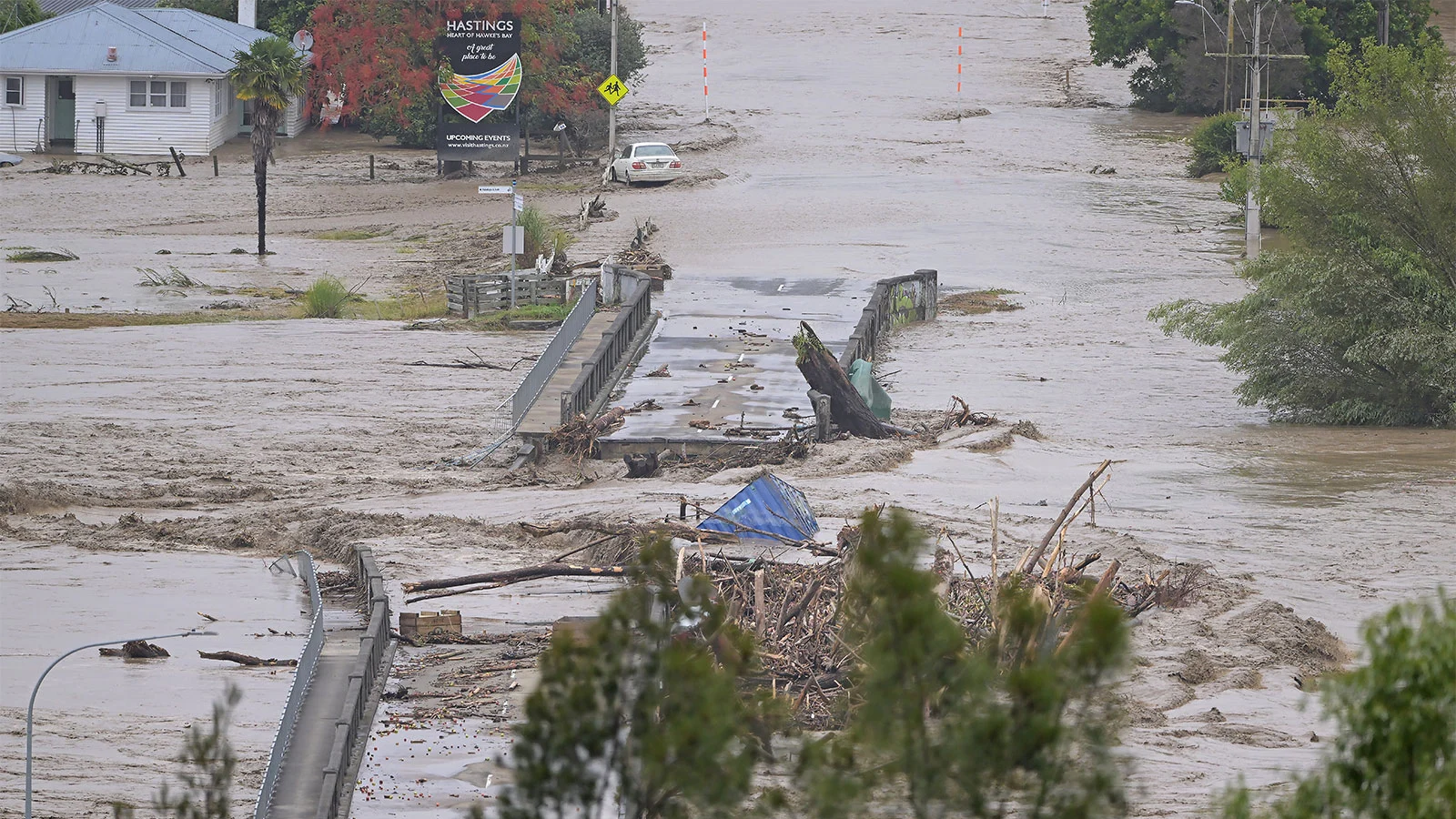
- Details
- By Joseph Lee, Grist
This story is published as part of the Global Indigenous Affairs Desk, an Indigenous-led collaboration between Grist, High Country News, ICT, Mongabay, and Native News Online.
In February, Cyclone Gabrielle hit New Zealand, bringing devastating floods and powerful winds, destroying homes, displacing thousands, and killing at least eleven people. Prime Minister Chris Hipkins called it “the most significant weather event New Zealand has seen in this century.” Around 70 percent of destroyed homes were occupied by Indigenous Māori, but Māori leaders say that they have been left out of recovery services and funding.
“Because climate events have gotten more and more intense, it’s at a point of our communities will either get wiped out through more storms or have to choose to leave their homelands,” Renee Raroa, a Ngati Porou Māori representative from Mana Taiao Tairāwhiti in eastern New Zealand, said. “We’re running out of options.”
With the frequency and severity of storms increasing, along with other climate impacts like rising sea levels, Māori peoples are facing increasingly dire climate crises and calling on the United Nations for help. At the United Nations Permanent Forum on Indigenous Issues, or UNPFII, Māori representatives called on New Zealand to include Māori people in disaster recovery plans, provide support for Indigenous-led climate initiatives, and fully implement the U.N. Declaration on the Rights of Indigenous Peoples – a nonbinding resolution that affirms international Indigenous rights. Māori representatives also called on the U.N. to pressure New Zealand to support Indigenous land rights.
“Cyclone Gabrielle exposed the human rights dimensions of climate change disaster,” said Claire Charters, Māori Indigenous Rights Governance Partner at the New Zealand Human Rights Commission. “Māori rights must be part of all climate change and emergency policy and law.”
The Māori say neglect in the aftermath of the storm is just the latest violation of their human rights by the New Zealand government that could be solved by a national action plan to implement the Declaration on the Rights of Indigenous Peoples. In 2019, Indigenous leaders and the New Zealand Human Rights Commission began discussions to do just that, but talks were postponed last year, with the government saying that the general public needed more awareness of the plan and its purposes.
But Māori leaders say that the plan fell victim to political maneuvering, with politicians unwilling to tackle a contentious issue ahead of elections. With limited room to work at home, they say bringing their concerns to the U.N. can get conversations moving again in the national system. “We can add pressure back home by being here and by having our public statement heard on the global stage,” Raroa said.
“We must ensure that Māori are centered in the discussions on mitigation and adapting to climate change, and that Indigenous knowledge is more deliberately considered,” a representative from New Zealand’s government said in a statement delivered at the Forum. The representative also highlighted the importance of the United Nations Declaration on the Rights of Indigenous Peoples, but did not mention any steps to implement it.
Hannah McGlade, an Indigenous Noongar member of the Permanent Forum from Australia, says that New Zealand’s reluctance to actually implement the declaration is common around the world. The U.S., Canada, and Australia have also been called out at UNPFII for their lack of action to implement the human rights standards. “We do see too great a gap between the declaration principles and the actions and conduct of countries globally,” McGlade said. “There has to be proactive commitments made through the plans.”
Meanwhile, as Māori continue to rebuild their own communities, they are also developing climate and environmental programs based on Indigenous traditions and practice, including reforestation and invasive species control. To fully realize these programs, the Māori say they need both more funding and more freedom to make land use decisions.
“We’re going to make the right choices for our land, so just provide the resources to help us get better,” Raroa said.
This article originally appeared in Grist, a nonprofit, independent media organization dedicated to telling stories of climate solutions and a just future. Learn more at Grist.org
Help us defend tribal sovereignty.
At Native News Online, our mission is rooted in telling the stories that strengthen sovereignty and uplift Indigenous voices — not just at year’s end, but every single day.
Because of your generosity last year, we were able to keep our reporters on the ground in tribal communities, at national gatherings and in the halls of Congress — covering the issues that matter most to Indian Country: sovereignty, culture, education, health and economic opportunity.
That support sustained us through a tough year in 2025. Now, as we look to the year ahead, we need your help right now to ensure warrior journalism remains strong — reporting that defends tribal sovereignty, amplifies Native truth, and holds power accountable.
 The stakes couldn't be higher. Your support keeps Native voices heard, Native stories told and Native sovereignty defended.
The stakes couldn't be higher. Your support keeps Native voices heard, Native stories told and Native sovereignty defended.
Stand with Warrior Journalism today.
Levi Rickert (Potawatomi), Editor & Publisher
